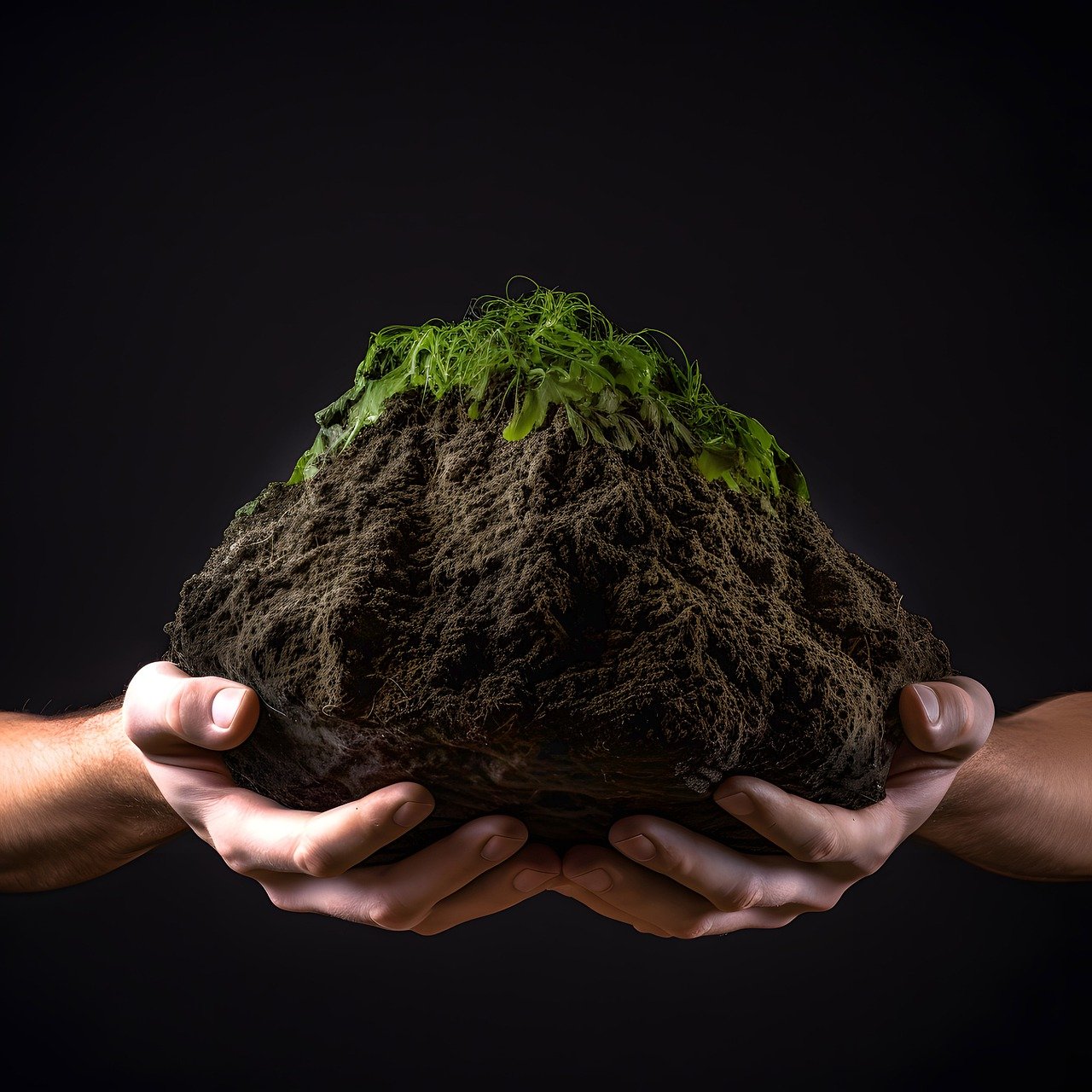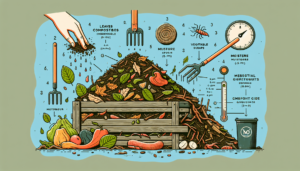Composting is a wonderful way to turn your kitchen scraps and yard waste into nutrient-rich soil for your garden. But how can you tell if your compost is healthy? Well, we’re here to guide you through it. From the earthy smell of well-decomposed material to the presence of beneficial organisms like earthworms, there are several signs that indicate the health of your compost. In this article, we will explore these signs and help you determine whether your compost is thriving or in need of some adjustments. So, let’s roll up our sleeves and uncover the secrets of a healthy, thriving compost!
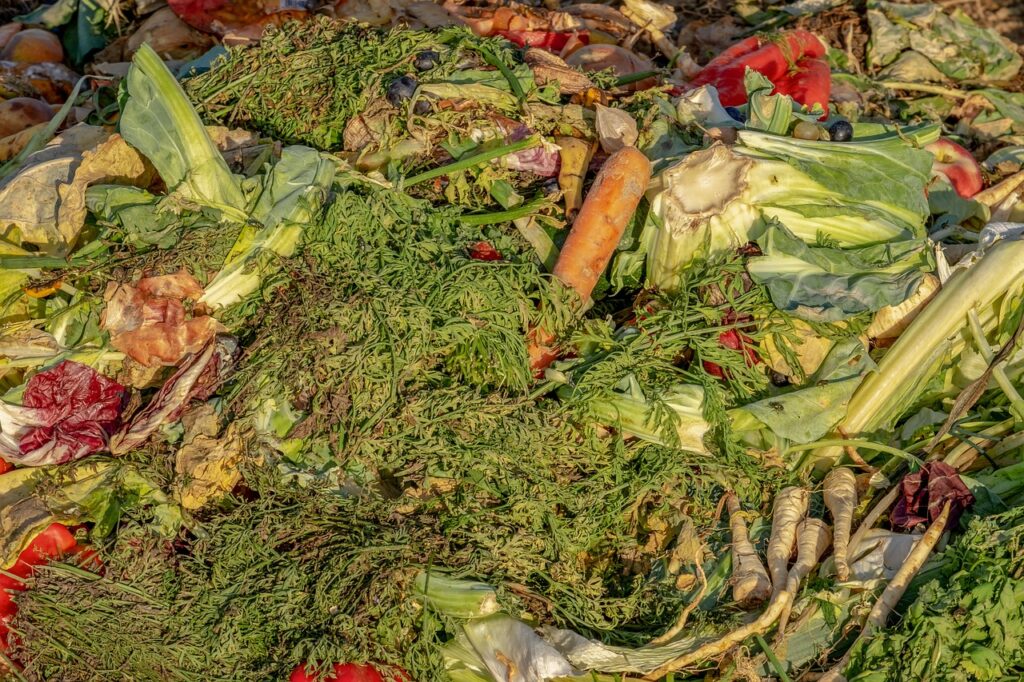
Appearance
Compost that is healthy has a dark, crumbly texture. It should be easy to break apart with your hands and have a pleasant feel to it. When you look at it, you should see a uniform brown color indicating that it has broken down evenly. A healthy compost pile should not have any foul odor. If it smells bad, it could be a sign that the compost is not properly aerated or that it contains too much nitrogen. So, if your compost has a dark, crumbly texture and no foul odor, it’s looking good!
What Are The Signs That My Compost Is Healthy?
Temperature
Temperature can be a good indicator of a healthy compost pile. When a compost pile is actively decomposing, it generates heat. This is due to the microbial activity breaking down the organic matter. Signs of heat in the compost pile can include steam rising from the pile on cooler days or feeling warmth when you insert your hand into the middle of the pile. Another important factor to consider is a consistent internal temperature. A healthy compost pile will have a steady temperature throughout. Fluctuations in temperature could indicate an imbalance in the compost pile, such as too much moisture or not enough aeration.
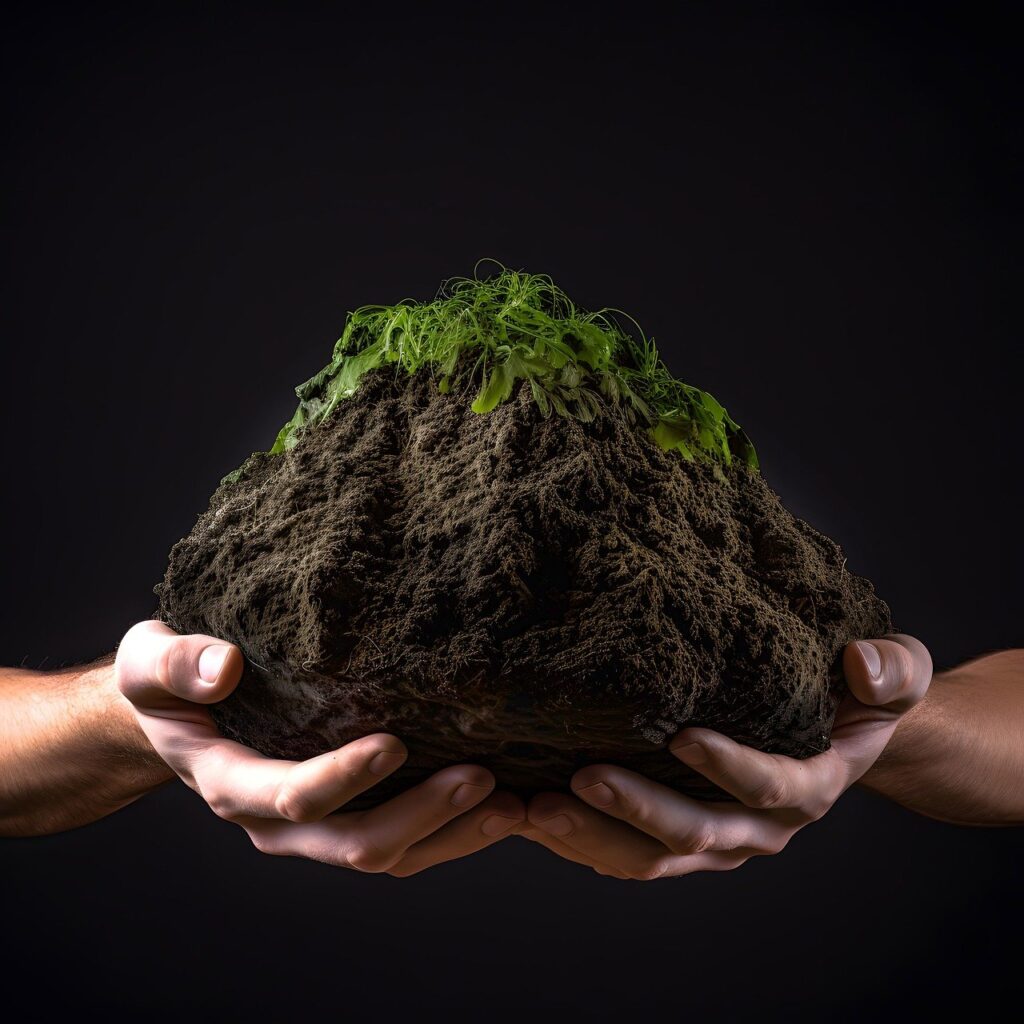
Moisture
Moisture is essential for the decomposition process in a compost pile. A healthy compost pile should be damp but not soggy. If you squeeze a handful of compost and water drips out, it is too wet. On the other hand, if the compost feels dry and crumbly, it lacks adequate moisture. The ideal moisture level is similar to that of a wrung-out sponge. You should be able to squeeze a handful of compost and have it hold its shape but not release water. Maintaining the right moisture level is crucial for the composting organisms to thrive and break down the organic matter effectively.
Organic Matter Breakdown
During the composting process, organic matter should break down to the point where it is no longer recognizable. A healthy compost pile will contain very few or no recognizable material such as leaves, twigs, or food scraps. The breakdown of organic matter is vital for the production of nutrient-rich compost. Regular decomposition is a positive sign, as it shows that the composting organisms are efficiently breaking down the material. If you still see large chunks of unprocessed organic matter in your compost, try turning the pile more frequently or adjusting the ratio of carbon-rich materials (such as leaves) to nitrogen-rich materials (such as kitchen scraps).
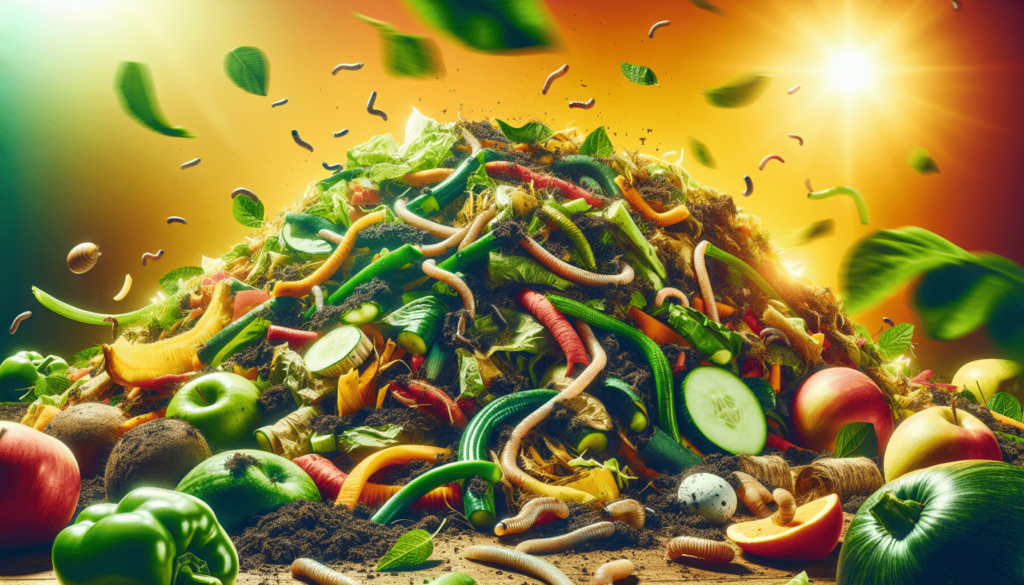
Earthworm Activity
Earthworms are fantastic allies in the composting process. Their presence in your compost pile is a strong indication of a healthy ecosystem. These little creatures help break down organic matter, improve soil structure, and enhance nutrient availability. If you dig into your compost pile and come across earthworms, it’s a great sign that your compost is on the right track. Additionally, you may notice visible worm castings, which are small piles of digested organic matter left behind by the worms. These castings are rich in nutrients and contribute to the overall fertility of your compost.
Microbial Activity
Healthy compost is teeming with microbial activity. Microorganisms like bacteria and fungi play a vital role in breaking down organic matter and turning it into compost. One indication of microbial activity is a sweet, earthy smell. If your compost smells pleasant and earthy, it likely means that beneficial microbes are present and actively doing their job. Another sign of microbial activity is the presence of visible white fungal mycelium, which resembles a thin, wispy web. Fungal mycelium helps decompose tough plant material and aids in nutrient cycling. So, if you can see and smell the microbial activity, it’s a positive sign for your compost.
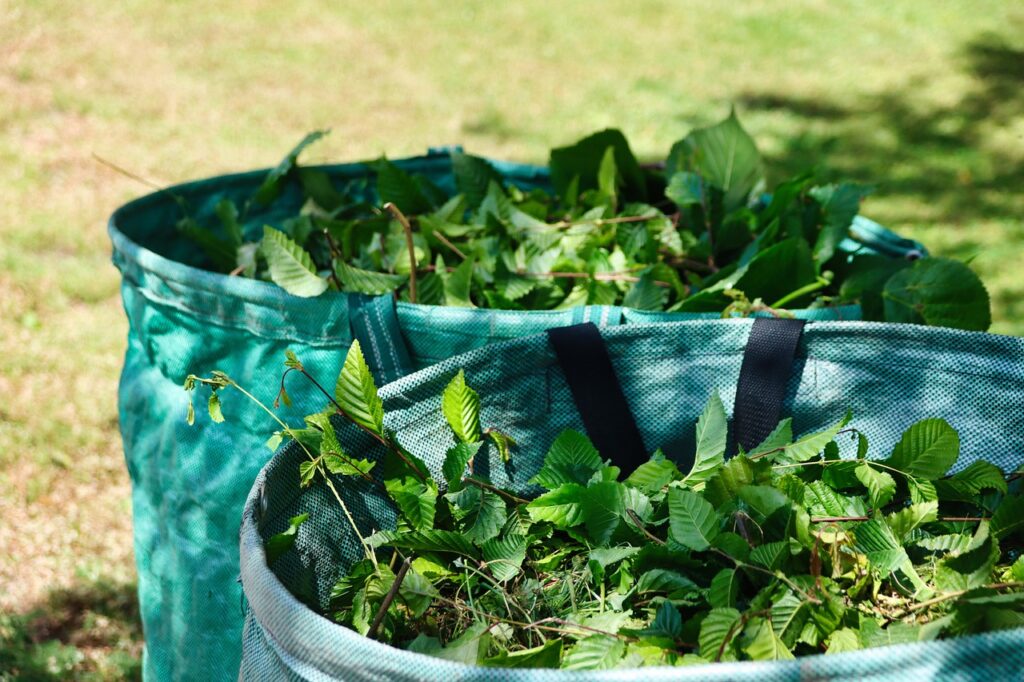
pH Level
pH is a measure of the acidity or alkalinity of a substance. In the case of compost, a neutral to slightly acidic pH range is ideal. Most composting organisms thrive in this pH range, and it allows for effective decomposition. Testing your compost’s pH with a pH meter can give you an accurate reading. If your compost’s pH falls within the desired range of around 6 to 7, it suggests that the breakdown process is occurring optimally. If the pH is too acidic or too alkaline, you can make adjustments by adding appropriate amendments to bring it back into the desired range.
Nutrient Content
Healthy compost should have a rich brown color, indicating a well-balanced blend of organic matter. The breakdown of the composting ingredients should result in a homogeneous mixture, with a consistent texture and color throughout. The nutrient content of your compost should be well-balanced, containing a wide range of essential plant nutrients such as nitrogen, phosphorus, and potassium. This nutrient balance is crucial for the overall health and fertility of your compost. If your compost has a deep brown color and has been properly managed, it’s likely to contain valuable nutrients that can benefit your garden plants.
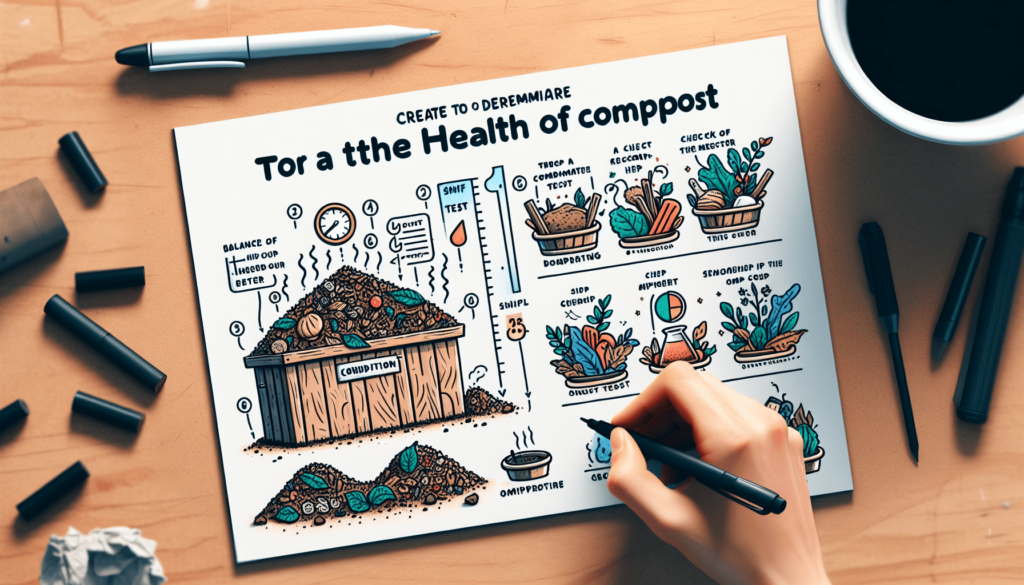
Absence of Pests and Weeds
An indication of a healthy compost pile is the absence of pests and limited weed growth. A well-maintained compost pile discourages pests from taking up residence and causing damage. If you notice worms, beneficial insects like beetles or centipedes, but no harmful pests, it’s a good sign that your compost is creating a favorable environment for beneficial organisms. Additionally, a healthy compost pile doesn’t support excessive weed growth. This is because the high temperatures reached during the composting process can kill weed seeds, preventing them from sprouting and multiplying in your garden.
Maturation Time
Composting is a process that requires time and patience. A healthy compost pile will eventually fully break down, resulting in a dark, crumbly, and uniform consistency throughout. This process takes time, usually several months to a year, depending on various factors like the size of the pile, the materials used, and the environmental conditions. When your compost has reached this stage of maturation, it is ready for use in the garden. The fully matured compost will have a pleasant earthy smell, a rich brown color, and no visible chunks of unprocessed organic matter. By allowing your compost enough time to fully break down, you ensure that it contains all the beneficial nutrients and microorganisms necessary to nourish your plants effectively.
In conclusion, a healthy compost can be identified by its appearance, temperature, moisture level, organic matter breakdown, earthworm activity, microbial activity, pH level, nutrient content, absence of pests and weeds, and maturation time. By being attentive to these signs, you can ensure that your compost is well on its way to becoming a nutrient-rich soil amendment that will support the growth of healthy plants in your garden. So keep an eye out for these indicators, and soon you’ll have a wonderful and sustainable source of compost to improve your soil and enhance your gardening endeavors!

